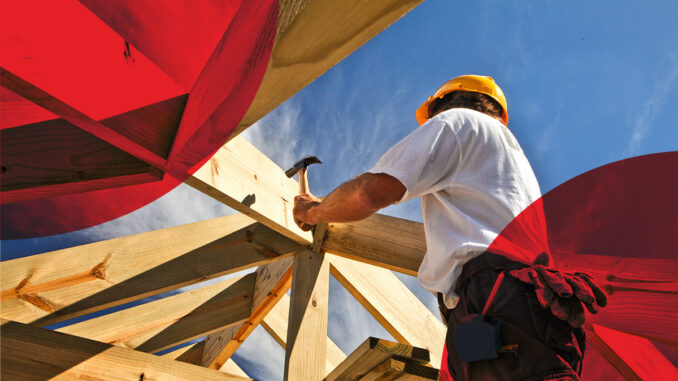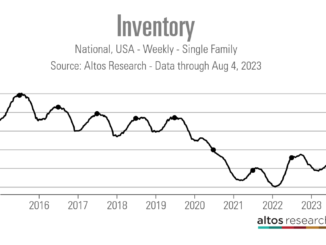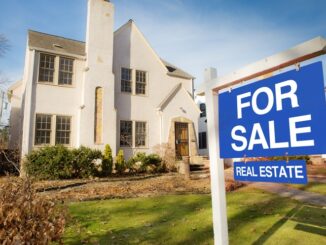
Housing starts picked up significantly in July to a seasonally adjusted annual rate of 1.452 million, according to the U.S. Census Bureau. That was up 3.9% from June and up 5.9% from a year ago. Meanwhile, permits for future construction eked a 0.1% gain from June but were 13% lower from a year ago.
The increase in housing starts came after an unexpected slump last month and beat expectations. The Census Bureau also adjusted June’s figures down to 1.398 million from 1.43 million.
Overall, single‐family housing starts in July came in at a rate of 983,000. This is 6.7% above the revised June figure of 921,000. The July rate for units in buildings with five units or more was 460,000. Single-family permits increased (+0.6%) to 930,000 in July while multifamily permits came in at 464,000.
Completed homes fell 11.8% from the prior month and were 5.4% below the July 2022 level. The pace of single-family home completions picked up from the prior month, boosted by gains in the Midwest and West.
Meanwhile, there are just over one million multifamily units under construction, a record.
Still, it’s a good, not great report, economists said. Housing starts have been down for 13 of the last 15 months on a year over year basis. And the NAHB/Wells Fargo builder confidence index also fell in August, the first decline in 2023.
Declines in the current pace of sales and the next six months pushed the index down, said George Ratiu, chief economist at Keeping Current Matters.
In spite of the affordability challenges, homebuyers remain eager to buy. Developers and construction companies seem to “have come to terms with the affordability challenge and have been erecting smaller homes at more approachable prices this year,” said Ratiu.
Though there are near-term and medium-term challenges with mortgage rates and waning affordability, the fundamentals still look good, economists said.
“Higher mortgage rates threaten affordability and builder supply-side challenges remain, but the housing market remains fundamentally underbuilt and existing homeowners aren’t moving,” said Odeta Kushi, deputy chief economist at First American. “While builders can’t make existing homeowners move, they can add more new homes to the housing stock.”
Completions were down in July, but that is about one year after permits and starts began to decline, leaving fewer homes in the pipeline and thus dampening completions, said Nicole Bachaud, an economist at Zillow.
“New construction remains a vital source of new inventory in this market, with many builders still offering incentives that allow for more buyers to find opportunities in the new homes market, so continuing to build is important to the overall health of this market,” she said.
There are other challenges for prospective homebuyers to overcome, said Travis Hodges, a managing director at insurance brokerage VIU by HUB. It’s become much more difficult to secure homeowners insurance in several markets, and rising costs are a big concern.
“With insurance premiums expected to be up 7% this year on average, finding coverage at a reasonable price is key for new home buyers to carry a mortgage,” Hodges said.
States like California and Florida, which are both prone to extreme weather events, are now facing issues of multiple carriers leaving the market. A similar situation might happen in Maui after catastrophic wildfires destroyed parts of the island.



